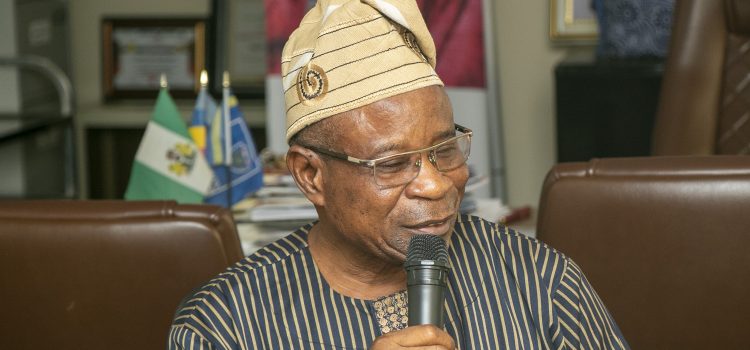The Vice-Chancellor of McPherson University, Professor Francis Igbasan, has admonished students to be good ambassadors of the Industrial Training Fund (ITF) and McPherson University as they embark on their Student Industrial Work Experience Scheme (SIWES) training for the year. He made this remark while addressing officials from ITF during a recent visit to the University.
Reflecting on his own SIWES experience in 1986, at Obasanjo Farms, Ota, Ogun State, the Institution’s helmsman recounted how the program provided him with valuable life and professional skills. He urged students to embrace the opportunity to develop practical knowledge and workplace ethics that would prepare them for future careers.
The ITF delegation was led by Bolanle Ajibade (Area Manager), alongside Oluwatosin Akinbola (Head of Training), Cynthia Oluwarikpo, and Babatunde Jaiyeola, their visit was aimed at strengthen collaboration with the University and provide guidance on the expectations and benefits of the SIWES program.
Speaking during the session, the Acting Director of SIWES, McU, Dr. Kayode Olumurewa, emphasized the importance of the training program, describing it as an opportunity to acquire life skills. He advised students to make themselves assets rather than liabilities in their respective training organizations.
In her presentation, Oluwatosin Akinbola, Head of Training at ITF, highlighted the difference between the world of school and the world of work. She stated that students enrolled in specialized engineering, technical, business, applied sciences, and applied arts programs must undergo supervised industrial attachment as part of their academic curriculum.
She further explained the role of the Federal Government in the SIWES scheme, emphasizing its objectives, responsibilities, and the importance of students adhering to workplace regulations. She also outlined key codes of conduct, stressing the need for obedience to organizational rules and policies during the training period.
The event concluded with an interactive question and answer session, where students sought clarifications on various aspects of the SIWES program, expectations from employers, and strategies to maximize their industrial training experience. The session reinforced the Institution’s commitment towards equipping students with practical skills for career success.










